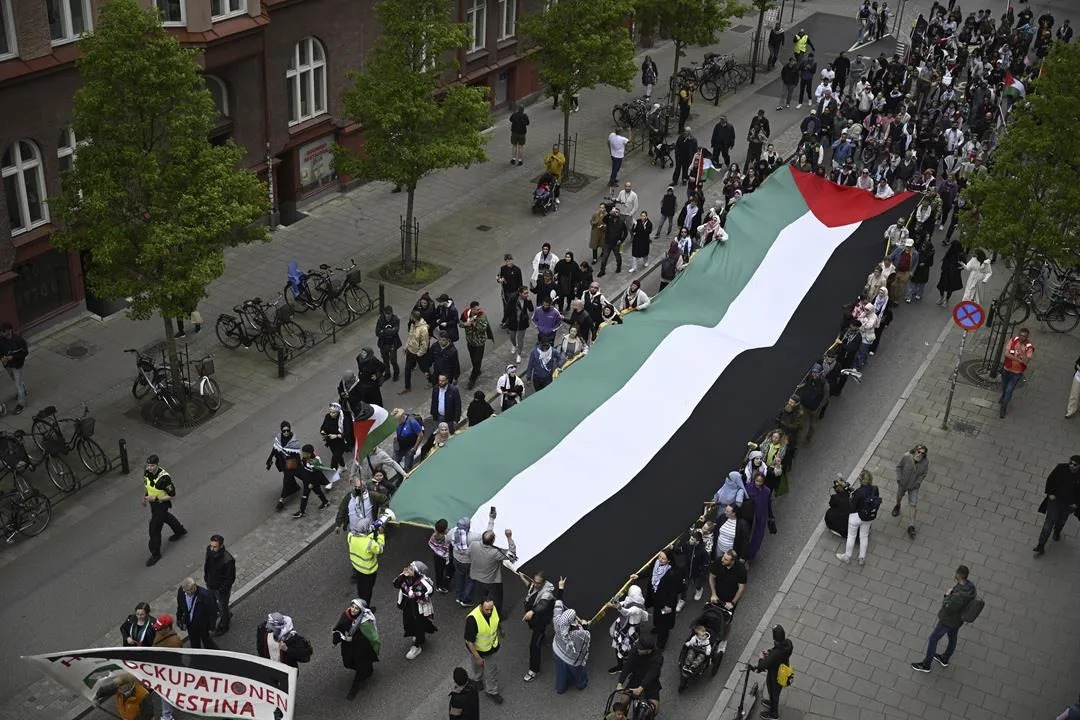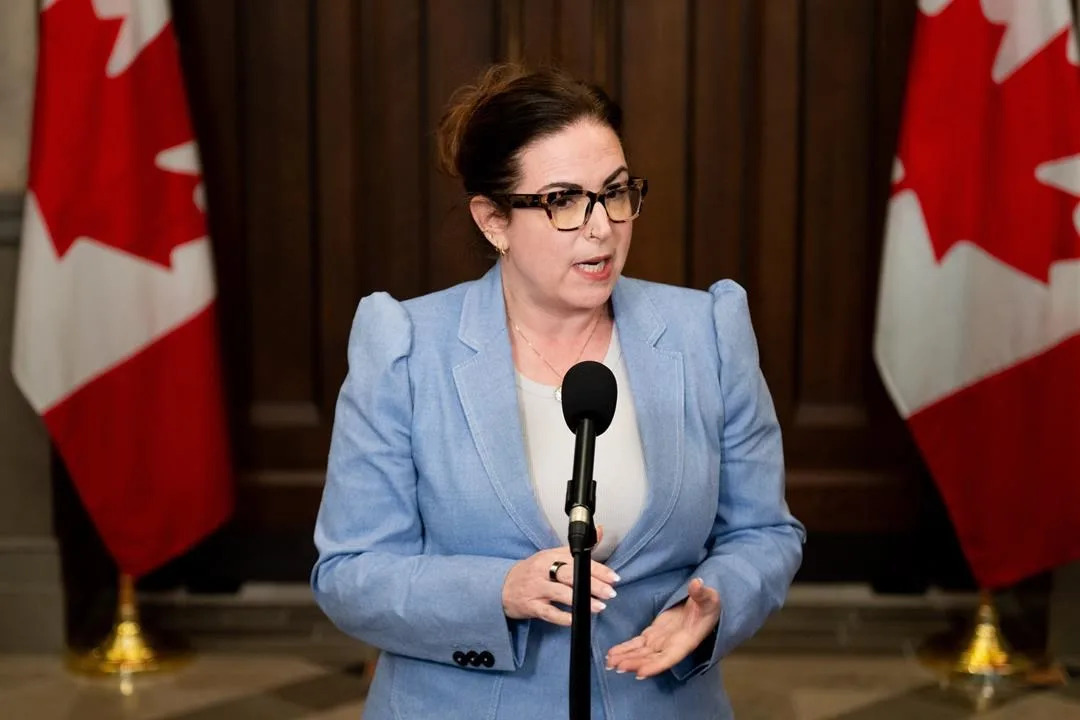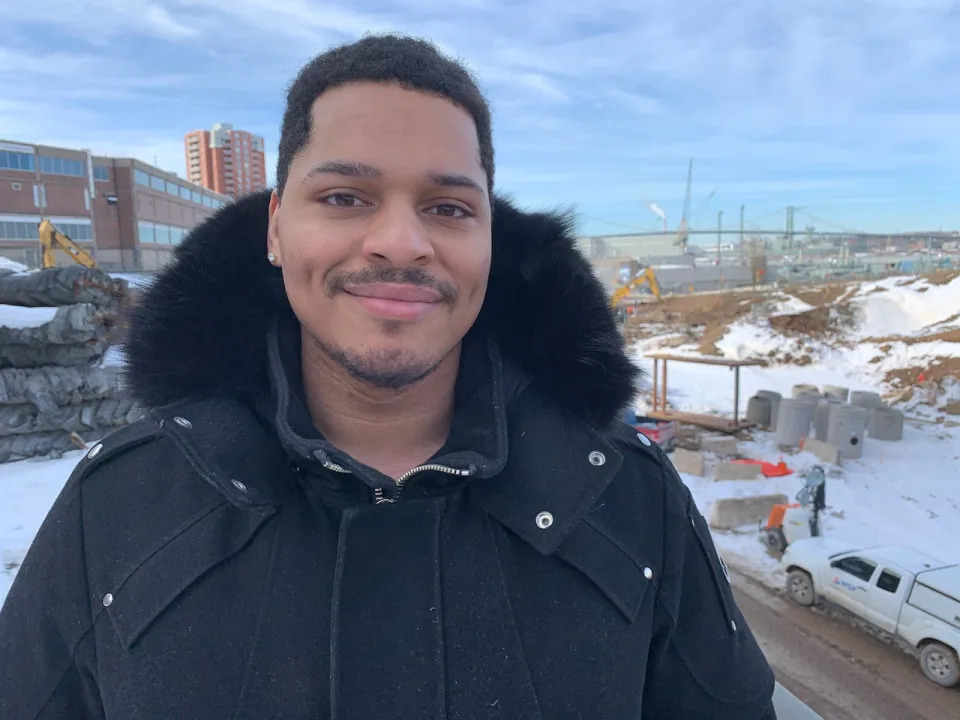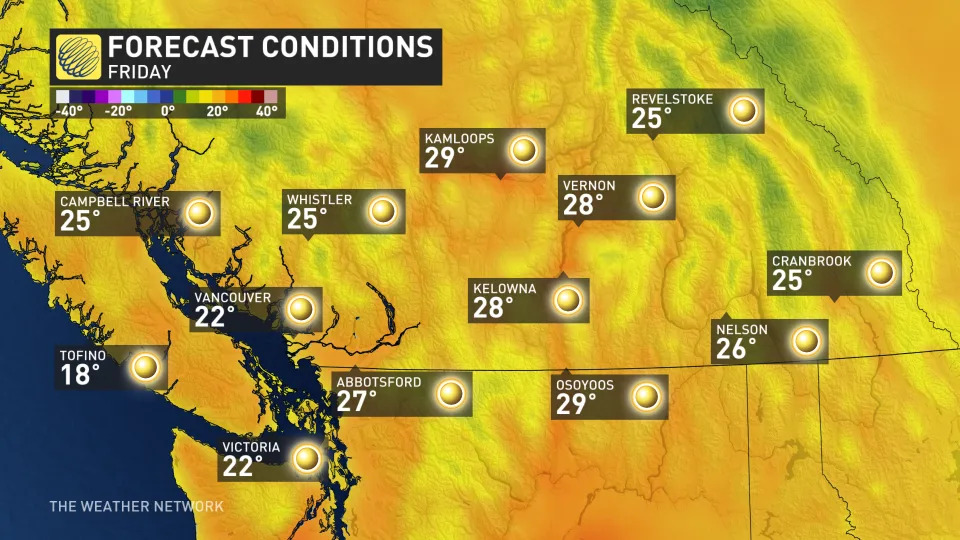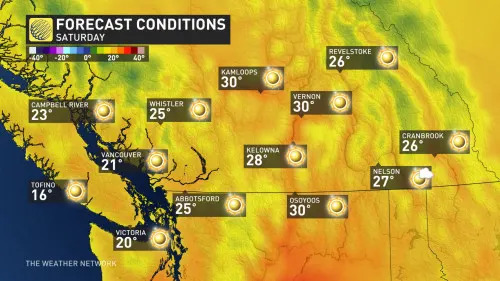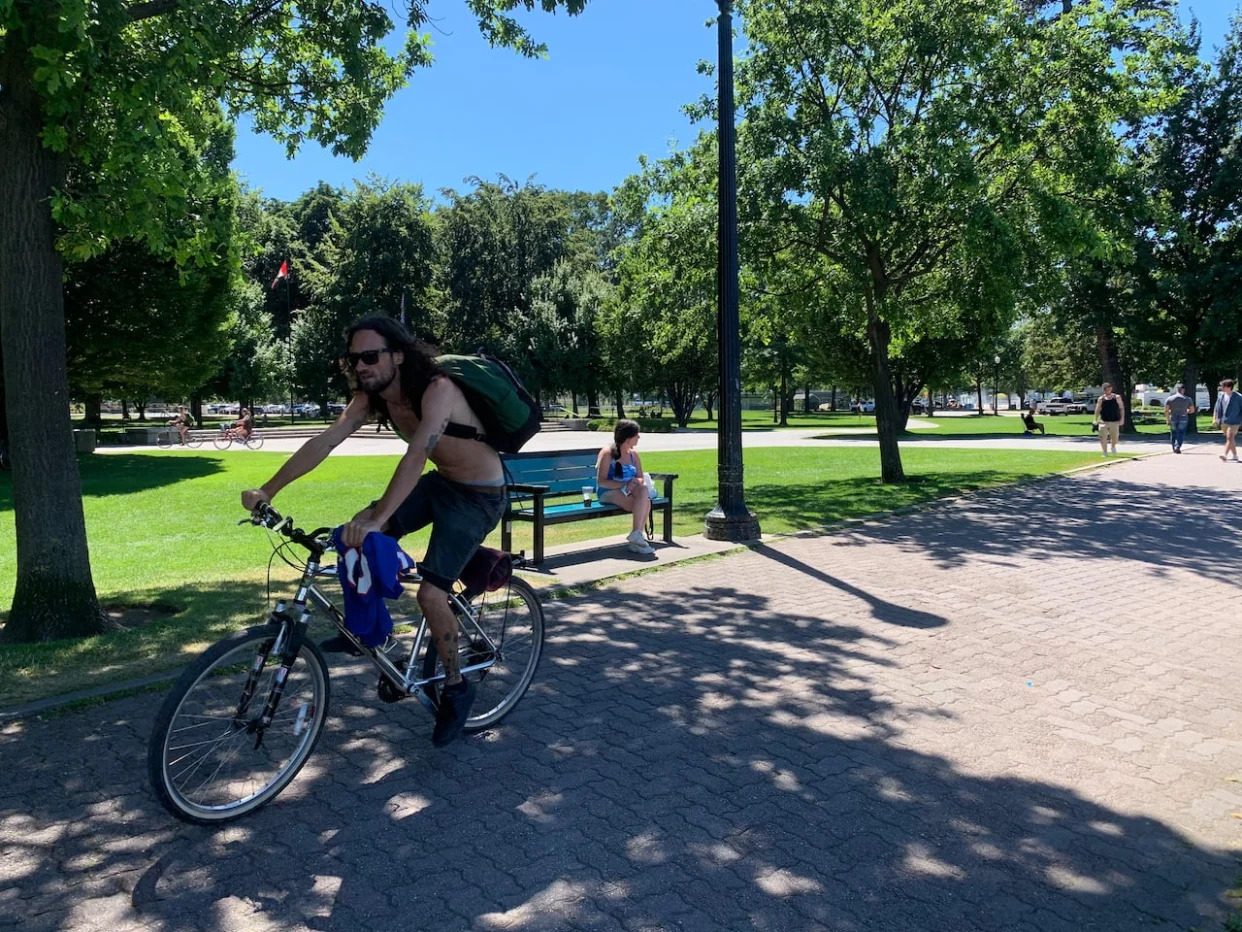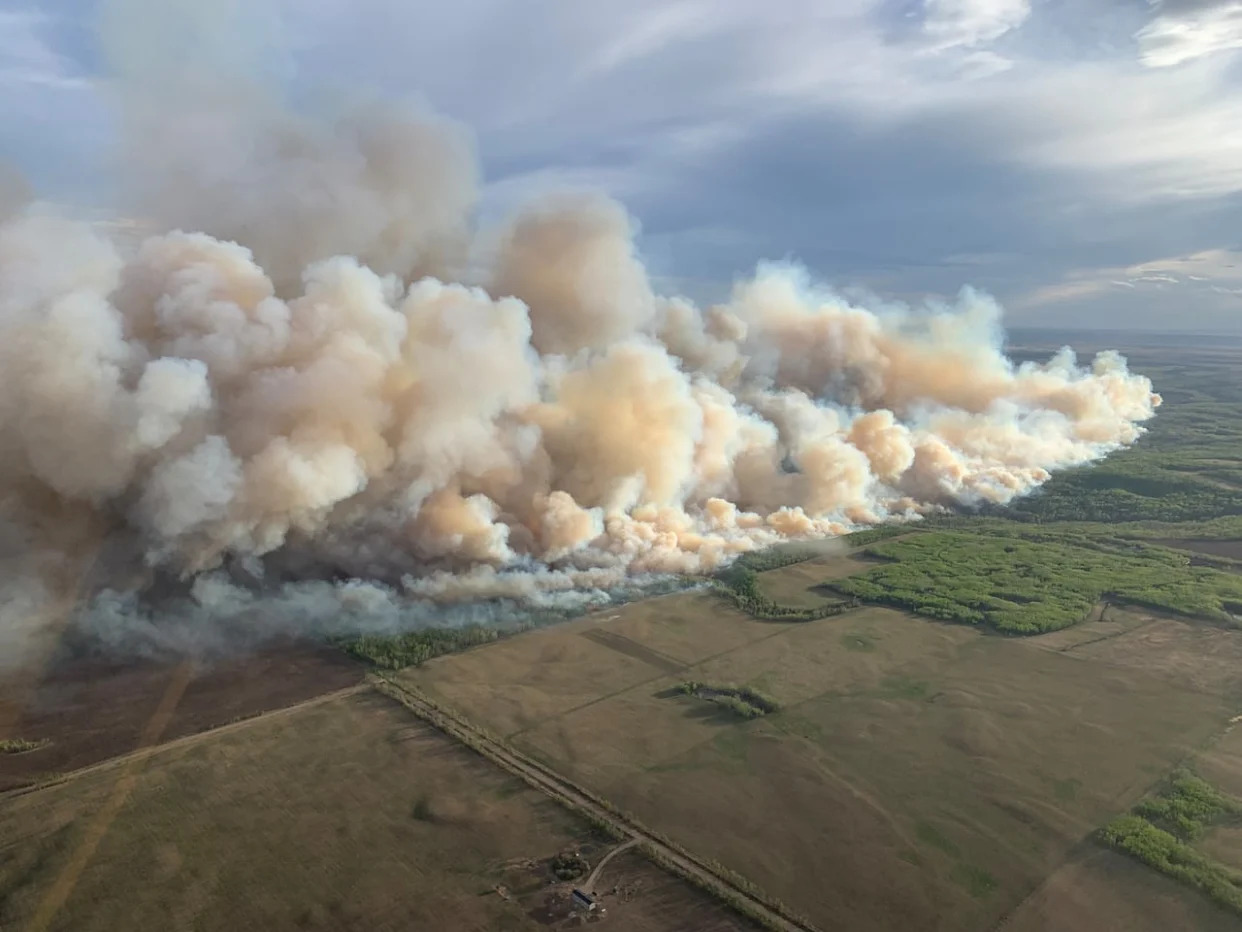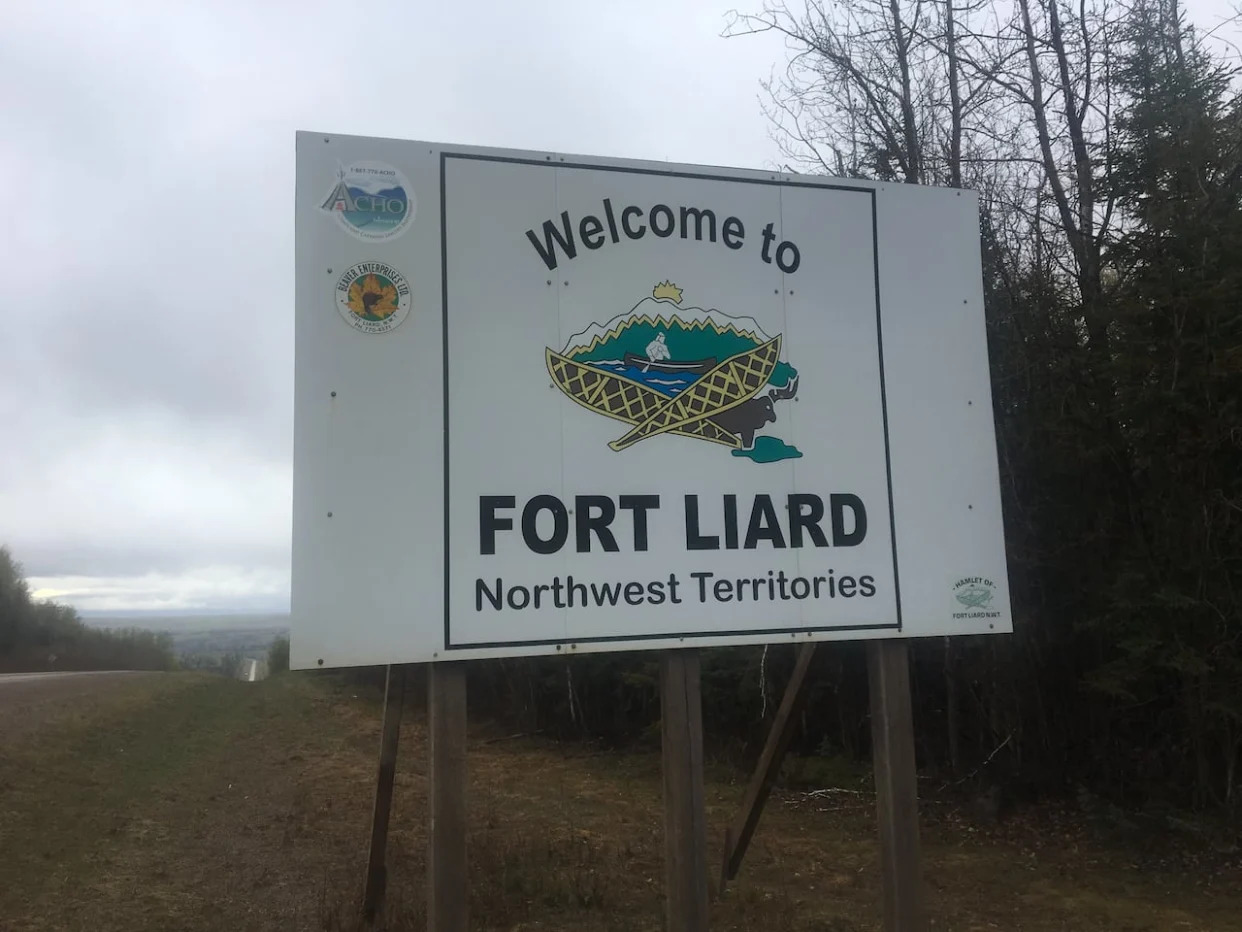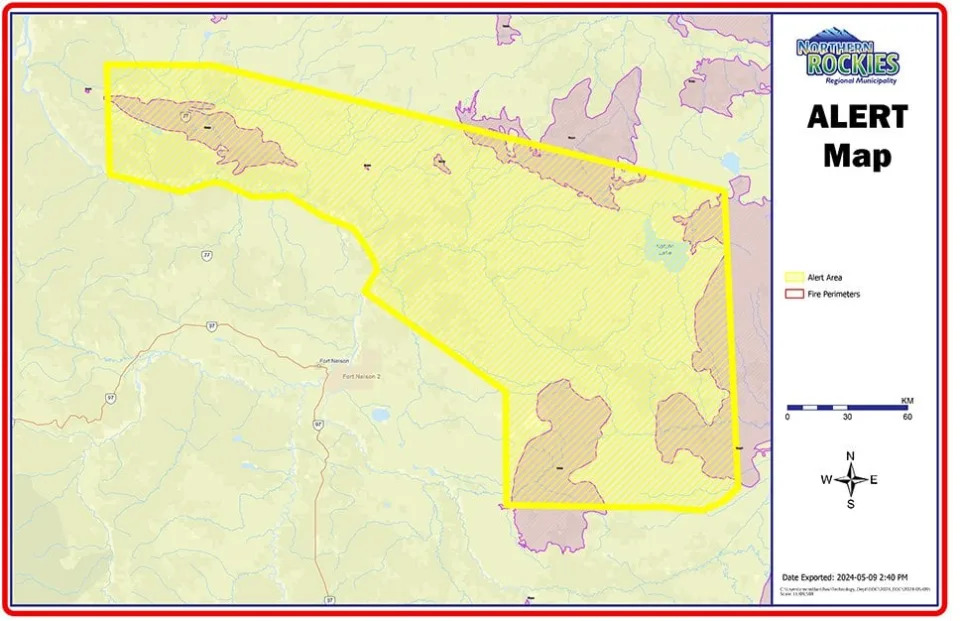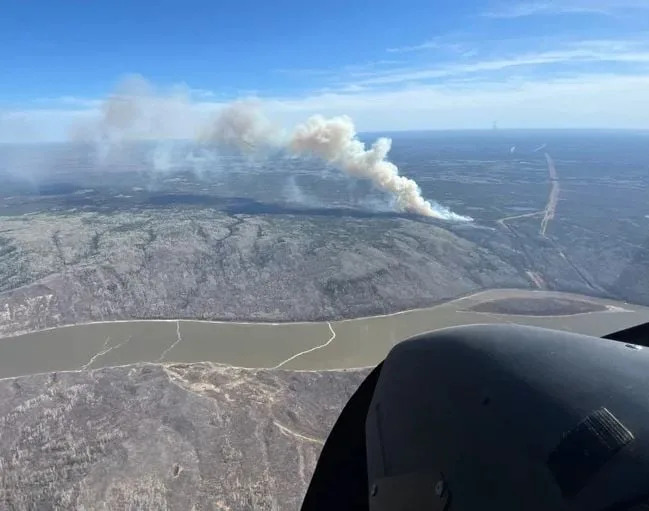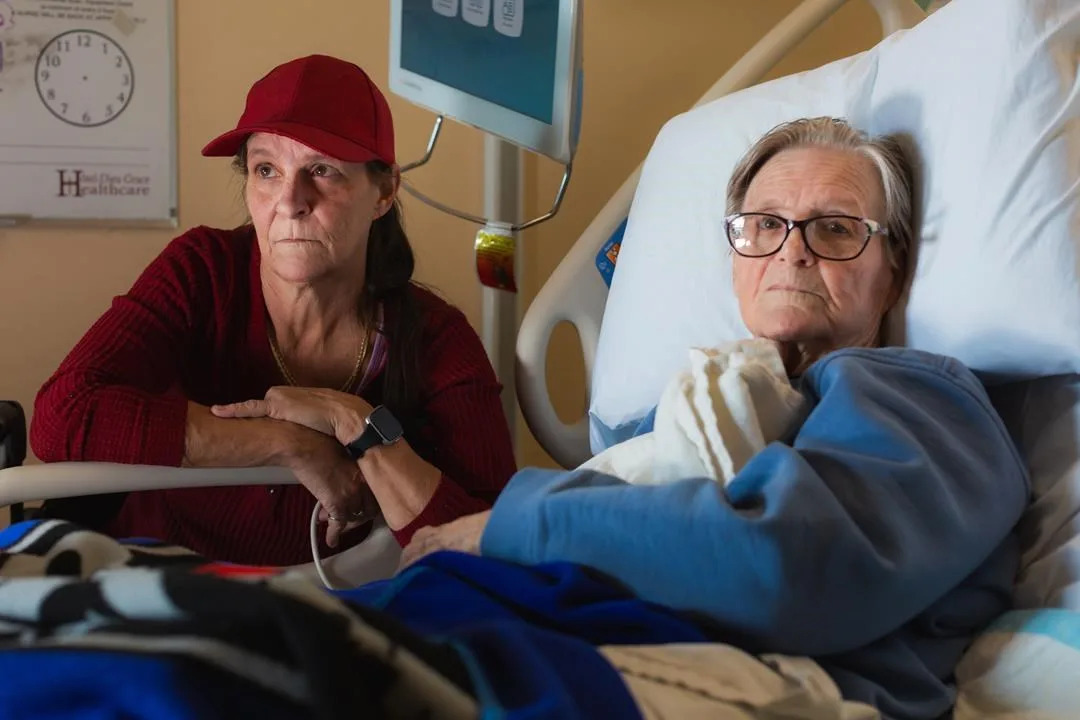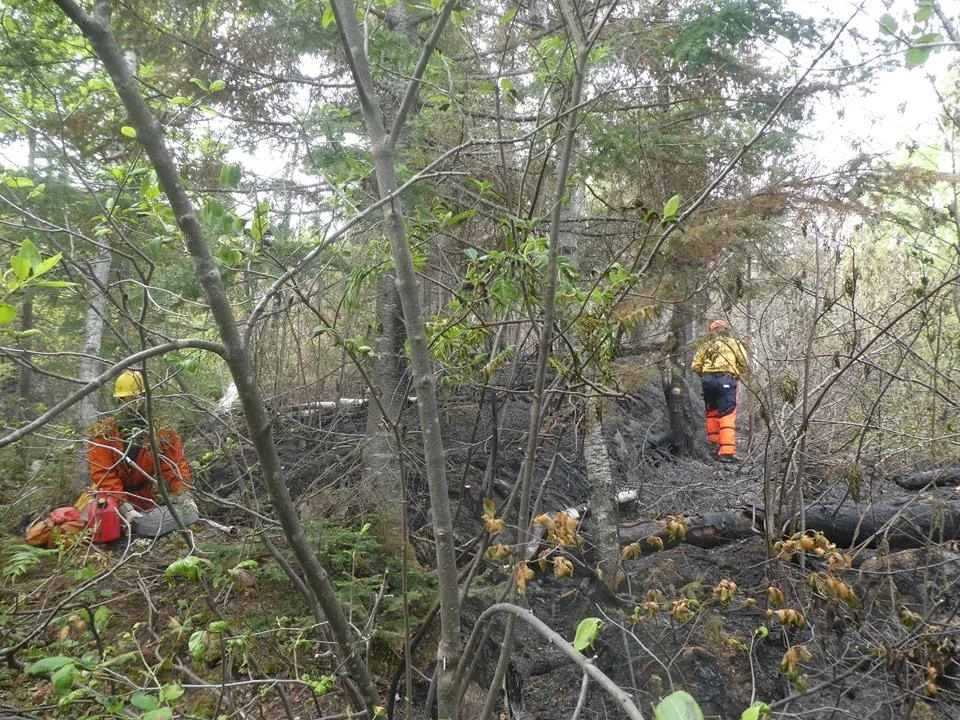CANADA
The Canadian Press
Sat, May 11, 2024
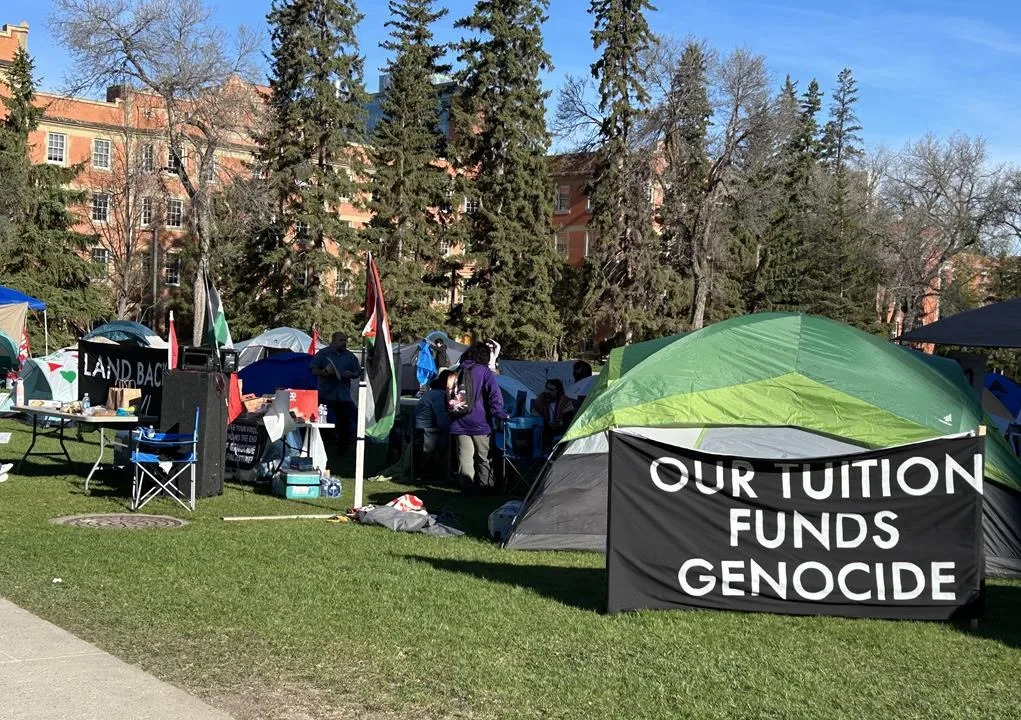
Edmonton police cleared a pro-Palestinian encampment at the University of Alberta early Saturday morning, one of several measures authorities have taken in recent days to crack down on campus protesters at sites across the country.
The Edmonton Police Service said it repeatedly gave campus demonstrators notice that they were breaching university policy and provincial trespassing laws. Officers issued a final warning just after 4:30 a.m. and escorted demonstrators from the north campus quad following one last call to leave, said spokesman Scott Pattison.
The move by authorities came less than two days after the camp began to form on Thursday, mushrooming to about 40 tents by the next day as protesters called on the university for divestment from Israeli institutions. The group has also demanded disclosure of those investments, a declaration of the right to protest and condemnation of Israel's invasion of the Gaza Strip as a "genocide."
University president Bill Flanagan issued a statement on Saturday citing fire hazards and the risk of escalation and violent clashes with counter-protesters among the reasons for police involvement.
"Of great concern, some members of the group brought in wood pallets, materials known to be used as barricade-making materials — actions that are counter to peaceful, law-abiding protests," he said.
"Overnight protests are often accompanied by serious violence and larger crowds amplify those inherent risks — especially as they attract counter-protestors or outside agitators."
Flanagan said about one quarter of the 50 protesters were University of Alberta students, "to the best of our knowledge," adding police reported no critical injuries.
"The vast majority of those present complied with the police direction and decamped peacefully from university property. Unfortunately two individuals without any connection to the University of Alberta did not comply with the request to vacate and they were removed," he said.
He added that "approved, peaceful protests are welcome" but they must comply with university policies and public safety rules.
A post on the university4palestine.yeg Instagram page said four people were arrested, with at least two released by 7:30 a.m.
Following the lead of protesters on U.S. campuses, demonstrators in Canada have erected encampments at universities in Montreal, Toronto, Ottawa and Vancouver as well as Calgary, where police forcibly removed participants from campus on Thursday night. The head of the University of Calgary said the dismantling devolved into a clash with officers because of counter-protesters.
Meanwhile, McGill University has sought a court order to clear an encampment at the heart of its campus in Montreal, saying safety and security are at stake.
In a judicial application for an injunction filed Friday, the university framed its request around sanitary concerns and what it described as the "risk of violence and intimidation."
The filing cites "fierce verbal exchanges" between protesters and counter-protesters earlier this month, barrels of "human waste" on site, possible fire code breaches such as a single point of exit and the encampment's potential as a "magnet" for further clashes.
On top of a doubling of the security detail on the quad, McGill said it will likely have to spend more than $700,000 on an alternate venue for spring convocation ceremonies that are typically held on the grounds partially occupied by the protesters.
A Quebec Superior Court hearing on the injunction is slated to take place Monday.
McGill students began to set up tents two weeks ago, which now number more than 100 in a fenced-off corner of the quad. The demonstrators have demanded the university divest from companies they allege are "complicit in Israel's occupation of Palestine" as the country's war with Hamas in the Gaza Strip drags on.
This report by The Canadian Press was first published May 11, 2024.
Christopher Reynolds, The Canadian Press
As encampments at Canadian education centres grow, Yahoo News Canada takes you inside 'Little Gaza' on University of Toronto grounds
Corné van Hoepen
·Editor, Yahoo News Canada
Updated Wed, May 8, 2024
An encampment consisting of over one hundred students set up on the grounds of University of Toronto has entered it's seventh day, drawing both scrutiny and praise from the public and officials.
Closely monitored by students and security and encircled with construction fencing holding banners, those within say they refuse to move unless the university discloses ties with the Israeli government and divest from Israeli companies.
"It's beautiful to see so many people come together from so many backgrounds and perspectives," Erin Mackey, student media liaison tells Yahoo News Canada. "Look around, you see Indigenous elders, we have Jewish students, we have Muslim students and people from all walks of life who felt called to come down."
Why are students encamped on U of T grounds?
Mackey, an undergraduate at the university says the encampment was formed over the university's ties to Israel as its deadly attack on Gaza enters its seventh month.
"We are here at this encampment standing in solidarity with the people of Palestine and demanding that the University of Toronto divest from from the Israeli apartheid," Mackey said. "We are focusing on the University of Toronto and ending their complicity in this genocide."
RELATED: Photos from the inside of the University of Toronto encampment
The encampment sprang up in the campus's King’s College Circle last Thursday, having since tripled in size and is drawing national attention from the public and government officials. Faculty have since joined students in calling for divestment.
A student makes adjustments to her tent. (Credit: Corné van Hoepen)
Mackey says one of the student's main concerns is where their tuition money is going.
I pay tuition to this institution and they are taking that money and investing it in Israeli companies complicit in this genocide. It's hard to fathom that.Erin Mackey, student media liaison, University of Toronto encampment
Mackey notes that the concept of divestment from Israeli interests in not one born in the past week, but rather, years in the making.
"There's a lot of work that led up to this moment," said Mackey. "Students at U of T have been demanding that the university divest from Israeli apartheid since 2006." She said they were told the university had no interest in committing to divesting.
"I find this pretty horrific and a bad argument considering they have a ethical license policy so all we are asking for is for them to adhere to it."
Mackey says witnessing student action at education centres across Canada and the U.S. marks a watershed moment in history.
How is U of T responding to the encampment?
The University of Toronto has since responded, issuing a press release on May 8 stating that a request went out to dismantle the encampment, however, no action will be taken to limit student's rights to protest.
We have informed encampment participants that unauthorized activities such as encampments or the occupation of University buildings are considered trespassing. Our goal is to find a peaceful resolution, and we are talking to student representatives of individuals in the encampment to achieve this.University of Toronto response to encampment
University of Toronto President Gertler met with the members of Occupy for Palestine on May 3 to hear the student's demands and requests, the release states.
In a response issued Wednesday, the president says health, safety, and security concerns for students remains a top priority, and that he hopes a resolution can be met shortly.
Canadians and government officials respond to encampment
With university encampments making headlines across the nation, Ontario Premier Doug Ford shared his thoughts on the U of T encampment when speaking at a Holocaust memorial ceremony at Queen's Park on Monday.
"We need to remove those people ... these universities have to make a move," Ford said.
Canadians are also weighing in on the encampments, with recent polling conducted by Leger suggesting a majority of the population are against encampments on University campuses.
The survey suggests that just 31 per cent of respondents support the protests, which started more than a week ago on campuses like McGill, the University of Toronto and U-Ottawa.
Forty-eight per cent say the encampments should be taken down.
Inside the encampment walls
Those wishing to enter the encampment are met at the gate by screeners and are asked their intention to enter.
Entrance to University of Toronto encampment. (Credit: Corné van Hoepen)
Inside the encampment, tents dot one section, providing shelter for those encamped, while another section provides food and snacks for protests. On the other side, workshops and conversations are underway.
It's beautiful to see so many people come together from so many backgrounds and perspectives," said Mackey. "You see Indigenous elders, we have Jewish students, we have Muslim students and people from all walks of life.Erin Mackey, student media liaison, University of Toronto encampment
The encampment is the image of solidarity, with traditional knowledge being passed along to various group in workshops, Indigenous hand drumming and studies on the history of the long-standing conflict while community members offer supplies to keep those encamped nourished.
While U of T says they have a high threshold for expression, they will not permit any form of discrimination or harassment, according to a statement.
"When that threshold is crossed, or where there are threats or acts of violence, the University will act to protect and support its community," the statement reads.
Students and visitors conversing inside the encampment. (Credit: Corné van Hoepen)
How does this encampment end?
Mackey says that school administration have yet to address student demands.
The University of Toronto says it sees "a way forward" after meeting with student protesters behind a pro-Palestinian encampment on campus.
"Our goal is to find a peaceful conclusion to the unauthorized encampment on King’s College Circle as quickly as possible," U of T writes in their statement. "Members of the U of T administration continue to be in contact with U of T student representatives of the individuals in the encampment."
Pro-Palestinian activists have also set up tents at McGill University in Montreal, the University of Ottawa, McMaster University in Hamilton and the University of British Columbia campus in Vancouver.
The Canadian Press
May 3, 2024·
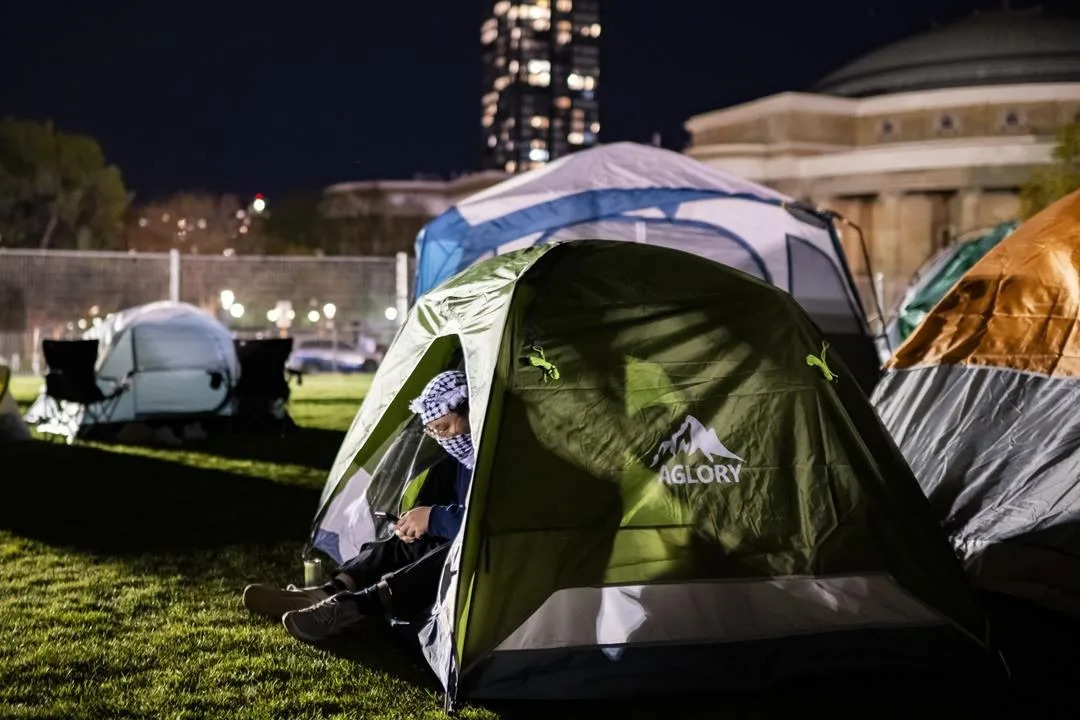
TORONTO — Protesters donned rain ponchos and huddled in tents at a pro-Palestinian encampment at the University of Toronto on Friday as they faced wet and windy conditions during the second day of a demonstration calling on the school to distance itself from Israel.
The encampment — one of several established at Canadian university campuses in recent days — went up early Thursday morning after students said they breached the fence around an area on the downtown campus known as King's College Circle.
The camp remained overnight following an evening rally, and protesters spent part of Friday securing tents and other materials to withstand the wind.
The overnight stay went "quite peacefully," said Mohammad Yassin, a fourth-year student and one of the protest's spokespeople. It was a little cold but "generally, everyone was in quite high spirits," he said.
Yassin, who has relatives in Gaza, said the demonstration and its cause are "very personal" to him.
"This entire academic year has been overshadowed by what's going on in Gaza," he said.
"There are a lot of students here at U of T who are experiencing this, and we feel that the administration themselves have been very negligent to our experience ... simply because we have a voice that they're not appreciative of."
The university has said the tents, banners and flags at the encampment are a safety concern, and had asked the students to leave by 10 p.m. Thursday. However, as the deadline approached, administrators went on to say that they didn't intend to remove protesters if their activities remained peaceful.
On Friday, the university said it was "increasingly concerned" about reports of threats, discriminatory language and hate speech, as well as safety, trespassing and "other illegal activity."
"It remains unclear how many of the protesters are U of T students and how many are members of the general public," the university wrote in a statement in response to questions about the encampment.
"U of T students who contravene university policy risk consequences, including suspension, as outlined in the Code of Student Conduct. All protest participants who engage in illegal activity are subject to consequences under Canadian and Ontario law."
In a message to the community, the university's vice-provost of students, Sandy Welsh, raised concerns over fire safety and said there had been reports of protesters "dumping biowaste and other materials" on the campus gardens and grass.
Erin Mackey, one of the protest organizers, said those who stayed overnight at the encampment were students, faculty members and members of the university community.
Mackey has said demonstrators were joining students at other universities in Canada and the United States in setting up encampments to call on their schools to disclose ties with the Israeli government and divest from Israeli companies.
"If (university administrators) want this encampment cleared, that's what they could do — they could make a commitment to divest," she said Friday.
"This encampment, however long it lasts, whatever happens next, students will be continuing to make this demand and continuing to demand that you have to divest from Israeli apartheid."
Kalliopé Anvar McCall, a fourth-year student taking part in the protest, said they were ready to stay "long term."
While there are some challenges in camping out, those aren't important, McCall said.
"This isn't about us. And we're not asking the community members or listeners here to stand in solidarity with us — we're asking you to stand in solidarity with Palestine."
The International Court of Justice is investigating whether Israel has committed acts of genocide in the ongoing war in Gaza, with a ruling expected to take years. Israel has rejected allegations of wrongdoing and accused the court of bias.
Israel's campaign in Gaza was launched after Hamas-led militants stormed into southern Israel, killing some 1,200 people, mostly civilians, and taking around 250 men women and children hostage in October. The Israeli offensive has killed more than 34,000 Palestinians, according to local health officials.
The war has wreaked vast destruction and brought a humanitarian disaster with several thousand Palestinians in northern Gaza facing imminent famine, according to the United Nations.
Alejandro Paz, an associate professor of anthropology at the University of Toronto and a member of the Jewish Faculty Network, said the students protesting were "not obstructing anyone" but rather learning and thinking together outside the classroom or lab.
"It's a little bit weird for the president of the university not to be willing to come here and engage and see what a remarkable set of students at the university that he's president of," Paz said. "This is really exciting. Students are taking their education extremely seriously."
Pro-Palestinian activists have also set up tents at McGill University in Montreal, the University of Ottawa and the University of British Columbia campus in Vancouver.
The University of Manitoba said it is aware of a planned three-day encampment at its Fort Garry campus in Winnipeg next week.
By Friday, the encampment at McGill's downtown campus had grown steadily from a few tents to several dozen surrounded by metal fencing. But protester Ali Salman, 19, said there is "no plan" to grow it beyond the 100 people he said are camping overnight.
"We've had hundreds of people saying 'we want to camp,' but since we are not growing the camp we couldn't let them in." One hundred campers, he said, "is more than enough."
Salman, a Concordia University political science student, has been at the site since the first tents went up last Saturday. If the encampment grows any bigger, he said, the activists will start having problems managing supplies and taking care of everyone.
"But if we see there is no communication with McGill, then we might reconsider," he said, referencing the demands he and other protesters have made to the university.
Quebec Premier François Legault on Thursday said any encampments at McGill would need to be taken down. However, Salman said he has seen no desire on the part of the police or the city to dismantle the encampment, adding he and other protesters will stay there all summer if needed to ensure their demands are met.
Prime Minister Justin Trudeau was asked about the encampments at an unrelated news conference in Hamilton on Friday and emphasized the need to balance the rights of protesters and those of others on campuses.
"I think we have to remember what universities are — universities are places of learning, universities are places where freedom of speech, the freedom of ideas, the challenge of debate, of dialogue, of discussion about how to shape the world, how to see the world ... are a core part of what campuses are all about," he said.
"At the same time, we need to make sure that as part of that everyone can feel safe on campus, whether you're a Jewish student, whether you're Palestinian, whether you have strong feelings on one side or the other. And on that we have to trust both universities to manage their campuses right, and local police of jurisdiction to do their work to make sure that everyone is safe."
This report by The Canadian Press was first published May 3, 2024.
Fakiha Baig and Paola Loriggio, The Canadian Press
Small group gathers near University of Waterloo in solidarity with U.S students protesting Israel-Gaza war
CBCMay 1, 2024·
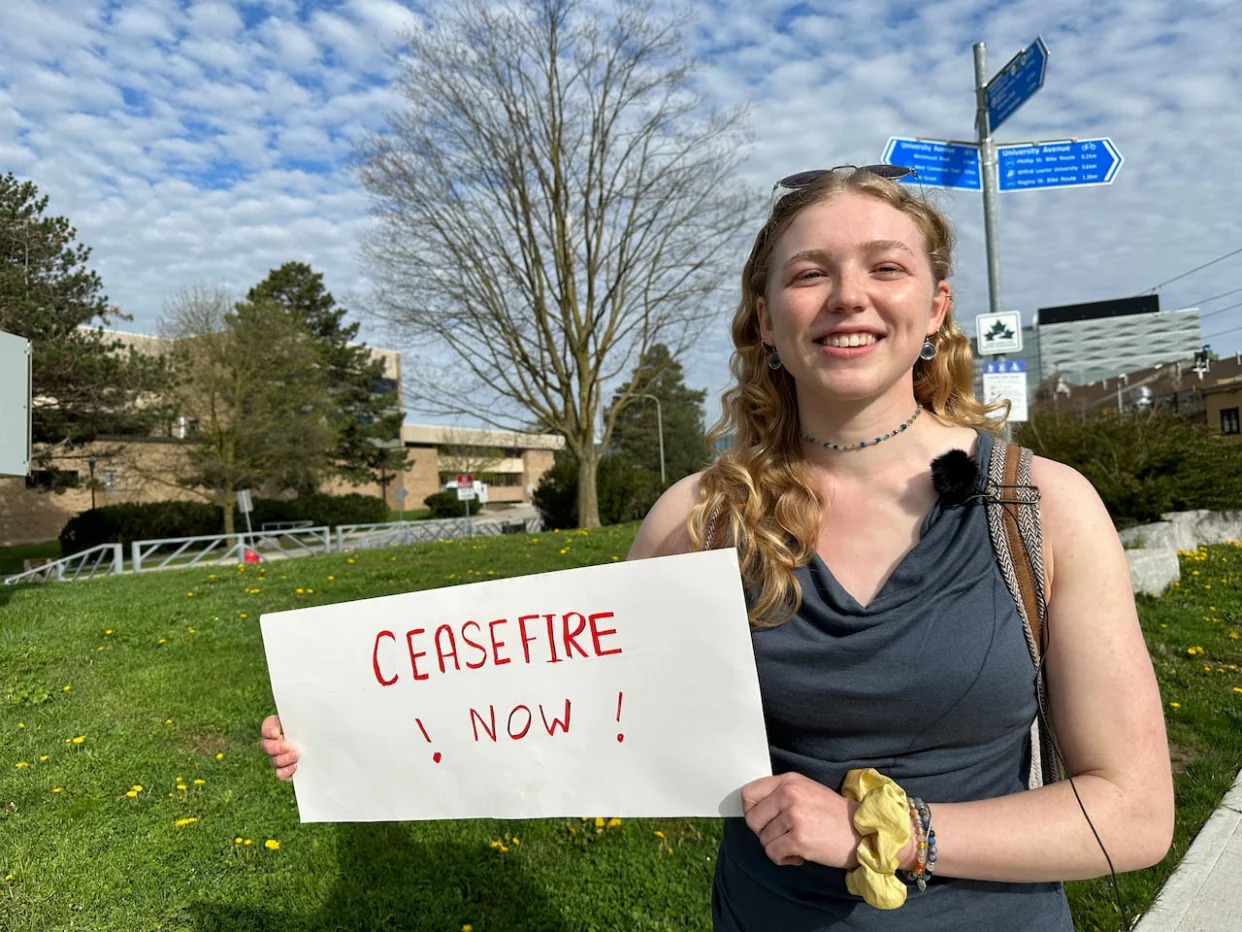
One of the protesters at Wednesday's rally at the edge of the University of Waterloo campus. (James Chaarani/CBC - image credit)
A small group of students and residents gathered near the University of Waterloo on Wednesday in solidarity with American students occupying parts of university campuses across the U.S. in protest of the Israel-Hamas war.
Tamara Lorincz, the co-organizer of the local rally and a PhD candidate at Wilfrid Laurier University, said that the rally will be a weekly event, meeting at University Avenue where it crosses the Laurel Trail.
"This is why I'm doing this action today, is to just try to be very public and visible, that there are people in Waterloo, there are students like myself in Waterloo that are standing in solidarity with the American students and with the people of Gaza," said Lorincz.
Lorincz explained that she would support an encampment in Waterloo reigon similar to those in the U.S.
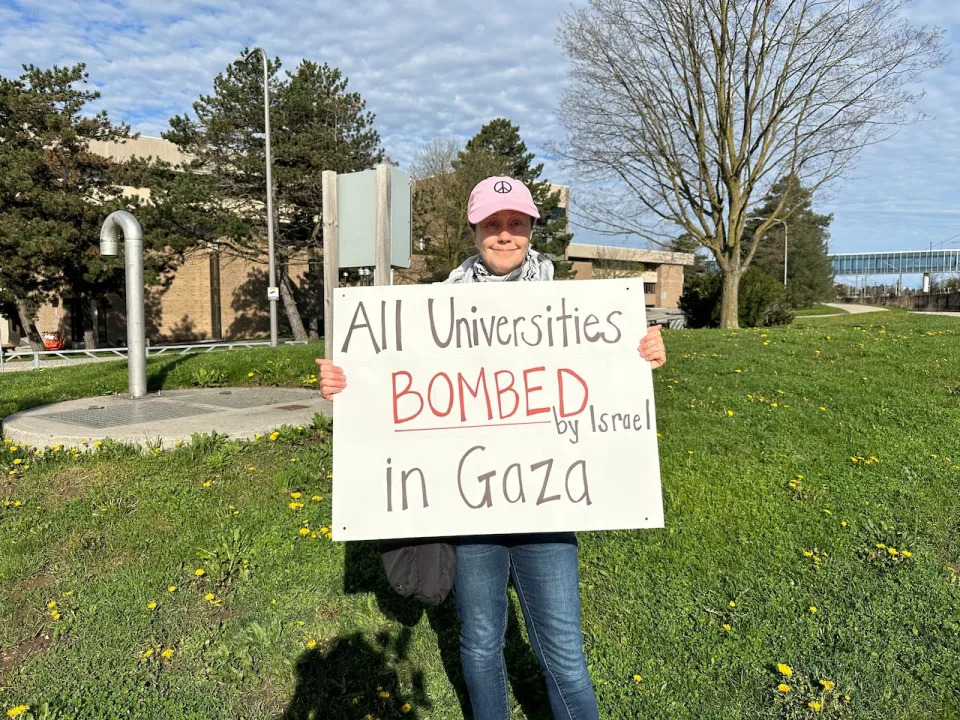
Tamara Lorincz is the co-organizer of the local rally in support of pro-Palestinian U.S. students.
Tamara Lorincz is the co-organizer of the local rally in support of U.S. students protesting on university campuses. (James Chaarani/CBC)
The demonstration of about a dozen people in Waterloo was part of a larger movement being seen at universities across the country and the U.S., which began at Columbia University in New York, where students and activists are urging academic institutions to divest from companieswith business interests in Israel.
They're also a response to the rising death toll in Gaza, where more than 34,000 Palestinians have been killed in retaliatory attacks by Israel for the Oct. 7 attack in that country.
About 1,200 Israelis were killed in that Hamas-led attack last October, and about 253 were taken hostage.
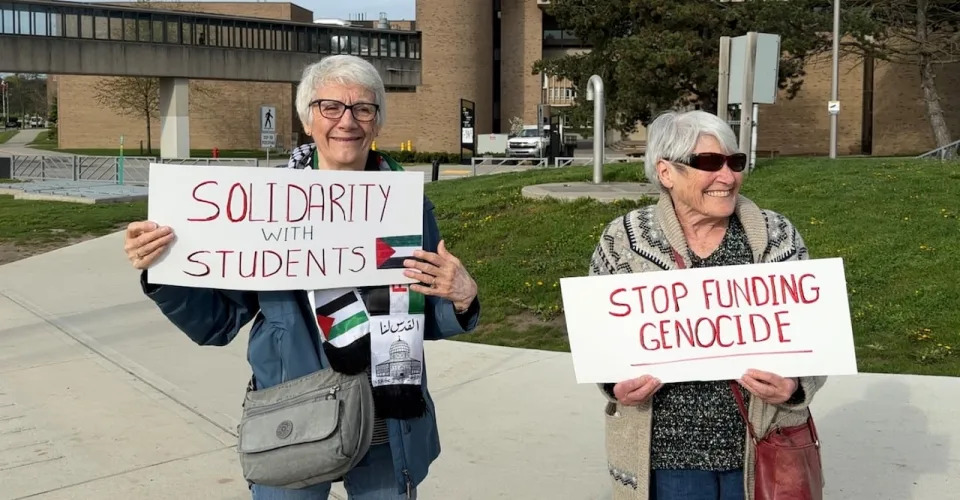
Two other protesters at Wednesday's rally.
Kitchener resident Terry Wood, left, said she believes that "somebody has to speak on behalf" of the students protesting at other university campuses. (James Chaarani/CBC)
'Focusing on students'
Kitchener resident Terry Wood attended Wednesday's rally carrying a sign that reads, "Solidarity with students." She said she believes that "somebody has to speak on behalf" of the students protesting at other university campuses.
"Just today we're focusing on students but the other days we're focusing on all of Gaza," said Wood. "And all of the people, all of the children."
Waterloo Regional Police Service told CBC News they were aware of the gathering. The University of Waterloo said the protest was not on campus and as such they did not have a comment about it.
